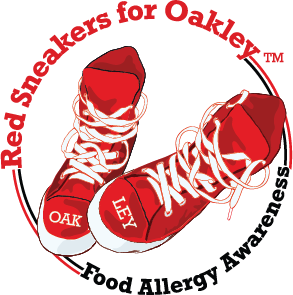Can I Be Sued For Administering Epinephrine To a Stranger Experiencing Anaphylaxis?
A mom from Oakley’s school reached out to us. Her daughter (with no known allergies) ordered an ice cream that contained nuts. Shortly after, the girl started experiencing symptoms of anaphylaxis. Fortunately, because the mother follows our account, she recognized the symptoms of anaphylaxis and started yelling, “I NEED AN EPIPEN! DOES ANYONE HAVE AN EPIPEN?” Luckily, a doctor was nearby who had epinephrine with him. He administered it and the young girl felt immediate relief.
But what if the doctor hadn’t been there?
If YOU heard a mother screaming out for epinephrine, would you administer your OWN (or your child’s) auto-injector on a stranger?
What if the mother did NOT recognize the symptoms of a reaction, but YOU identified clear signs of anaphylaxis? Would you epi the girl?
What if the child’s parent wasn’t around? Or what if an ADULT was clearly having a reaction but didn’t know what was happening?
Can you be sued for administering epinephrine in any of these situations? Are there legal ramifications?
While State laws may vary, the law generally protects those who help during an emergency, as long as the intent is to save and protect a life. For example, the Virginia Code § 8.01-225, also known as the Good Samaritan Law, provides legal protection to individuals who help others in an emergency situation. In order to be protected legally, the statute says that the individual offering the assistance must do so in good faith and without compensation. (allenandallen.com)
On June 13, 2019, Connecticut Governor Ned Lamont signed into law Public Act No. 19-19. As per Public Act No. 19-19, in the event of an anaphylactic reaction, a person with training may provide an epinephrine injector to the individual or to the individual’s parent, guardian, or caregiver. After any administration of epinephrine, the authorized entity must notify a local emergency medical service as well as the prescribing practitioner.
Dillon’s Law was introduced to US Congress in 2021. This Bill was meant to incentives states to allow “Good Samaritans” to save lives. This bill will allow states to use existing federal grant money for preventative health services to be used to train individuals to carry and administer epinephrine. The bill also requires states to implement civil liability protections for individuals trained in administering epinephrine. The bill has not moved past congress yet. Dillon’s Law was inspired by the life of Dillon Mueller who tragically passed away in 2014 at the age of 18 after being stung by a bee and falling into a coma due to anaphylaxis.
In the UK, the law allows for the administration of epinephrine (adrenaline) in the case of saving a life in the case of an emergency. (https://www.reactfirst.co.uk) And according to the Australasian Society of Clinical Immunology and Allergy (ASCIA), adrenaline have been designed for use by anyone in an emergency.
To encourage change and secure lives, it is essential that federal civil liability legislation is in place to ensure that those Good Samaritans who attempt to assist others during an anaphylactic emergency are consistently protected whenever and wherever they render aid.
**Please be advised that we are NOT attorneys and this is NOT legal advice. We are also NOT medical professionals and this is NOT medical advice. Please consult an attorney for any legal advice. We advise that you do your own research based on location as laws may vary.**
